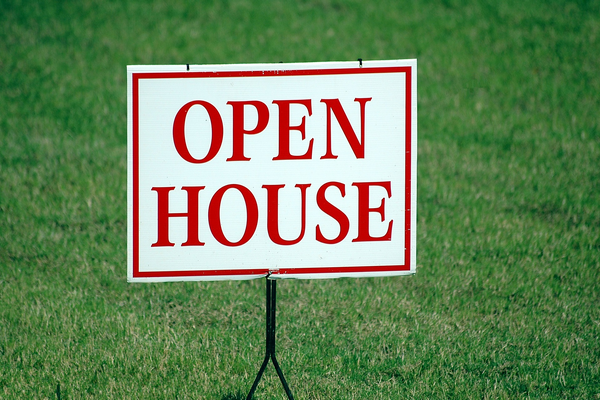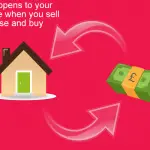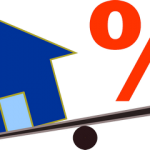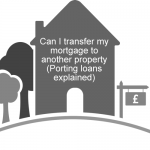
So you’ve decided to sell your home and you’re wondering how much money you get to keep when you sell.
How much money you keep when you sell your house is after deducting the following amounts:
- Estate agents commission.
- Solicitors fees for selling a house.
- Energy Performance Certificate (EPC) or a Home Report in Scotland.
- Repayment of mortgage.
- Early mortgage repayment charges.
- Mortgage exit or admin fee.
- Removal costs.
- Other secured loans.
- Any necessary repairs.
- Deposit for new home.
Let’s take a look at each of these in more detail. But please make sure to read to the end of this article, where I explain about an opportunity of how you get to keep more money when you sell you house.
1. Estate agents commission for selling your house
Possibly one of the first things homeowners think about having to pay when they sell their house is estate agent’s commission. Commission rates for estate agents range from 0.75%-3% plus VAT of the final sale price.
The amount of estate agents commission you pay will vary depending on which estate agent you choose. Other factors that will affect the level of commission include if you go sole agency or multi agency and how hard you negotiate.
But in most cases commission is only paid if the house is sold. However, some of the online estate agents charge a lower fixed upfront fee before you sell your house.
However, you can sell your house without an estate agent and sell your home yourself or sell to a house buying company that doesn’t charge fees.
On an average house sold for £250,000 would mean estate agent commission at 1.25% would cost £3,750 including VAT.
2. Solicitors fees for selling a house
To sell a house you need a solicitor or a licensed conveyor to carry out all the legal work for you. A conveyancing solicitor will charge anywhere between £500 to £1,500, plus VAT depending on the complexity involved in selling the house.
But in truth most houses can be sold for a conveyancing fee of less than £1,000, plus VAT.
It’s possible to sell your house without using a solicitor, but it’s not recommended.
Your conveyancing solicitor will deal with the buyer’s solicitor and the mortgage company during the sales process.
3. Energy Performance Certificate (EPC) or a Home Report in Scotland when selling your house
Before you can sell your house you are legally obliged to have an Energy Performance Certificate done. An EPC must be done before your house can be put on the market so the energy performance rating can be disclosed in the sales listing.
An EPC contains the information about how energy efficient, or not as the case may be, your house is at keeping the heat in. The EPC will also give an indication of what can be done to improve energy efficiency.
You can arrange your EPC through the estate agent you use and typically costs around £100 to £150 plus VAT.
However, if you sell a home in Scotland you need to pay for a Home Report. A Home Report typically costs between £100 to £1,000.
4. Repayment of mortgage when selling your house
If your house has a mortgage secured on it, you can’t sell your home without repaying the amount outstanding on your mortgage.
What you hope when you come to sell your house is that the mortgage is less than what your home is worth. If it is you have what’s referred to as equity in your house.
However, if on the other hand what you owe on your mortgage is more than what your home is worth, this is referred to as negative equity.
If you have negative equity you won’t get to keep any money when you sell your house. In fact this will be the complete opposite, as you’ll have to come up with the difference.
For example, if you sell you house for £250,000 and your selling costs are £6,000, but your outstanding mortgage is £265,000, you will need to find an extra £21,000 (i.e. £250,000 – £6,000 = £244,000 – £265,000 = Negative £21,000).
If this is the situation you find yourself in there are other solutions to this. It may help you to take a read of these articles and in particular solution number 7 if you need to sell your house or Can’t sell house for what I owe.
5. Early mortgage repayment charges
Most fixed rate mortgages have a fixed period whereby if the mortgage is repaid early the lender will charge an early redemption charge. Often this charge is on a sliding scale.
This means if you repay your mortgage within the first year or so, the early repayment charge will be at its highest. But often times this reduces the closer you get to the end of the fixed period.
Early repayment charges can be quite penal and could put a serious dent in how much you keep when you sell your house.
Details about early repayment charges will be on your mortgage documentation. If you don’t have these to hand phone your lender instead.
One way to avoid paying an early repayment charge is to wait for the period to expire before you sell your house. An alternative is to port your mortgage to your new home.
6. Mortgage exit or admin fee
Most mortgages have an exit or an admin fee to pay when you repay the balance. Details of this will be within your mortgage paperwork.
Often this charge is quite small and is normally between £150 to £250.
7. Removal costs
Removal costs won’t be deducted from the house sale as such. But you will have to move out when the sale completes, which costs to do so. That means you need to take removal costs into account when you work out how much money you keep when you sell your house.
If you do the removals yourself this won’t cost much. But if you need to hire a van this will cost £100-150 plus VAT, depending on the size of the van. However, if you use a professional removal firm the cost could be as much as £3,000 to £4,000.
The cost of a professional removal firm will depend on how much stuff you have to move and the distance you are moving.
Of course if you are moving overseas, you need to also factor the freight costs into this too.
8. Other secured loans or liens against your property
If you have other loans secured on your property you will have to repay these on completion. You may also have other liens against your property that would prevent you from selling until these are also repaid.
If these other amounts secured against your property equal or exceed the equity you have, this will mean you won’t keep any money when you sell your house. Other secured loans can put you into negative equity too. This can trap you from selling your house.
But there is a solution to this if you contact us to discuss how we can help. Or take a read of the article referred to above.
9. Any necessary repairs when selling a house
Repairs are not deducted from the sale proceeds of your house sale. But they may be necessary in order to sell your house in the first place.
Certain repairs may be necessary to make your house more presentable and more saleable. Or it might be for necessary repairs required to pass the mortgage survey. Like for example if you have a damp problem.
Repairs can be viewed in a different way too. Because how much money you keep when you sell your house may be increased if you are smart about how you repair or improve your property.
Kitchens and bathrooms sell houses. If you give your kitchen and bathrooms a makeover, you may find you’ll get a bigger increase on what you sell the house for because of the work done versus what the repairs or improvements cost.
Also, if when you have the EPC done and there are recommendations for improving your home’s efficiency, these would be worth doing to improve the rating. This will make your home more desirable to buyers. Plus grants are often available to pay for these improvements.
But if you improve your energy efficiency in this way you will need a new EPC survey, as EPCs cannot be updated or amended.
10. Deposit for new home
If you intend to buy another house you will probably need some or all of your equity as a deposit for this. However, if you intend to rent instead of buying your next home, you can put the money you keep when you sell your house in the bank.
However, if you decide to rent, you will need to find your rent deposit and the first month’s rent upfront.
Example of how much money you keep when you sell your house
In this example, the person sells their home for £250,000 using an estate agent that charges 1.25% plus VAT.
| £ | £ | |
|---|---|---|
| Sale proceeds | 250,000 | |
| Estate agent commission (1.25% plus VAT) | £3,750 | |
| Legal fees | £1,125 | |
| EPC | £125 | |
| Mortgage | £185,000 | |
| Mortgage exit fee | £250 | |
| Removal costs | £2,200 | |
| __________ | ||
| Total deductions | 192,450 | |
| _______________ | ||
| Money kept on sale or for putting towards a deposit | £57,550 | |
| _______________ |
In the above example, the net amount you keep after selling your house is £57,550, but there are a number of ways in which you could increase how much money you keep when you sell your house. This includes getting a better commission deal with your estate agent or negotiating for lower legal costs.
But one very important way in which you could increase how much money you keep when you sell your house is to sell your house for more money. Whilst this may seem obvious, a high percentage of homeowners leave money on the table when they sell their house, and in my opinion unnecessarily.
If you would like to learn about how to add more value to your house, whilst also learning how to sell your house faster, please take a look at this course on how to do just that: How You Sell Your House In Under 2 Weeks For More Money.
What about stamp duty when selling a house?
The seller doesn’t pay any Stamp Duty when selling a house, as it’s the buyer who has to pay this. Stamp Duty paid by the buyer is usually paid by their solicitor on their behalf once the sale has completed.
What about paying tax when selling a house?
You won’t pay any tax when you sell your house if it’s your principle private residence. But if the house is an investment property, you may be liable to pay Capital Gains Tax.
If you do have to pay Capital Gains Tax, this will reduce the amount of money you keep when you sell your house.
I hope you’ve got something from reading this article about how much money do you keep when you sell your house
If you’ve got something from this article on “how much money do you keep when you sell your house” please share it on your favourite social media site.
Also, if you have any questions, please feel free to comment below too. Alternatively, if you need more help, please feel free to contact us on our contact us page here. Or join the discussion and ask your question in the property forum.





I have a question I hope you will be able to help me… My house is worth more than i have borrowed on a mortgage, i should have 80k in my pocket after selling it. I want to keep 25-30k and put the rest down as a deposit for new house. Will I pay tax on the money I want to keep?
Thanks
Hi Joanna, thank you for your question and comment, but before I can answer this I need to know in which country you live and where the house is located.
If the property is in the UK, and if the property you are selling is your principle private residence (i.e. your home where you live), then you will not be liable to tax on any of the 80k, even on the part you don’t use as a deposit on your next home.